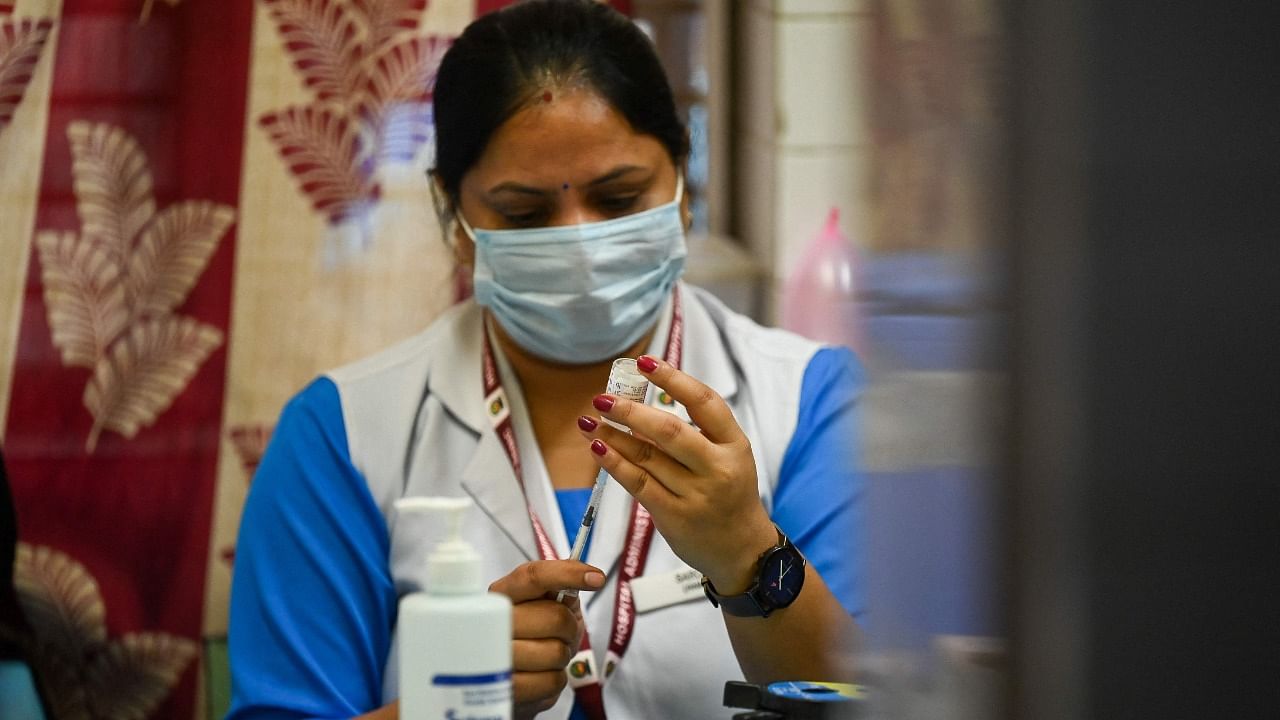
Seven months after Hyderabad-based Bharat Biotech submitted EOI (Expression of Interest) to the World Health Organization (WHO) for its Covid-19 vaccine's Emergency Use Listing (EUL), the global health body on November 3 gave a green signal to the indigenously-developed Covaxin.
The advisory group was expected to make a decision on Covaxin last week but had asked for additional clarifications from Bharat Biotech before conducting a final risk-benefit assessment for the vaccine's global use. The EUL would allow Bharat Biotech to ship Covaxin to countries that rely on WHO guidance for their regulatory decisions.
Developed in partnership with the National Institute of Virology, Pune that isolated the vaccine strain, the vaccine has so far been administered to more than 12 crore Indians. But the absence of the WHO certification was a bottleneck for such persons undertaking international travel.
The vaccine, which was approved for use in India in January this year, wasn’t considered valid by many countries. The nod is likely to pave the way for Indians receiving Covaxin to travel freely all over the world besides opening up the doors for export and manufacturing of the Indian vaccine in other countries through the technology transfer route.
Restrictions in travel
The manufacturers are hopeful that it would help expedite requests from countries seeking to buy the vaccine. The authorisation “will enable us to contribute to accelerating the equitable access of Covid-19 vaccine, and the access to our vaccine globally,” Krishna Ella, a top official at Bharat Biotech said.
WHO Chief Scientist Soumya Swaminathan had earlier noted that one of the reasons for the high amount of stress that people who've received vaccines which are not yet approved, either by WHO or by any of the other main stringent regulatory agencies, is “because of restrictions in travel that have been imposed.”
To ensure a simplified international travel regime, last month, India had also proposed a reciprocal Covid-19 vaccine certification framework to its partner countries. The mechanism is based on reciprocal recognition of the integrity of the vaccine certification process by the partner countries and it will help in normalising international travel, Foreign Secretary Harsh Vardhan Shringla had said at a media briefing.
Controversies
Covaxin was approved by Indian government officials in January and administered to millions of people even without data being released. Many in the country, including front-line health care workers, had feared that Covaxin could be ineffective or worse, slowing down the national campaign to inoculate 1.3 billion people.
After the drug regulator approved the vaccine for restricted emergency use in India, some senior Congress leaders had criticised the move noting that it was given the nod without phase three trial data. However, a day after Bharat Biotech said its anti-coronavirus vaccine has shown 81 per cent efficacy, the BJP hit out at the Congress for questioning the drug regulator's decision to grant it emergency use approval and said everyone should be proud of the results shown by it.
Before the phase three trial results, some healthcare experts also questioned the government's assertion that Covaxin can target mutated coronavirus strains and may be used as a "backup", as they asked for the scientific basis for the claim and for the vaccine's safety and efficacy. ICMR Director-General Dr Balram Bhargava had said Covaxin is based on an inactivated whole virus, having the potential to target mutated coronavirus strains including the UK-variant, and it was a major reason for giving it a conditional nod. He had maintained that no clear data regarding the efficacy of the vaccine was available at the time of the approval.
Meanwhile, officials in Brazil, where the government had bought doses of Covaxin, had raised questions about the vaccine and were investigating possible irregularities in its contract to buy 20 million shots of Covaxin from India.
Efficacy and performance
In a statement issued in July after it approached the WHO for granting the EUL, Bharat Biotech had claimed the vaccine to be 77.8 per cent effective against symptomatic Covid-19 and 93.4 per cent effective against severe symptomatic Covid-19. In addition, the efficacy data demonstrated 65 per cent protection against the Delta variant. The WHO said Covaxin had a 78 per cent efficacy rate against Covid-19 and should be administered in two doses four weeks apart to adults, noting the vaccine’s easier storage requirements might be convenient for poor and developing countries.
The global health body, however, said that available data on vaccination of pregnant women with the Covaxin vaccine is insufficient to assess vaccine safety or efficacy in pregnancy. "Available data on vaccination of pregnant women with the Covaxin vaccine is insufficient to assess vaccine safety or efficacy in pregnancy; studies in pregnant women are planned, including a pregnancy sub-study and a pregnancy registry," the WHO said in a series of tweets.
The shelf life of Covaxin has also been extended from six to 12 months from the date of manufacture, based on data showing that it is safe and effective. Covaxin is being manufactured in three locations in India, with the current production at more than 50 million doses per month. Bharat Biotech has said it is aiming to make 1 billion doses per year by the end of this year.
(With DHNS/agency inputs)